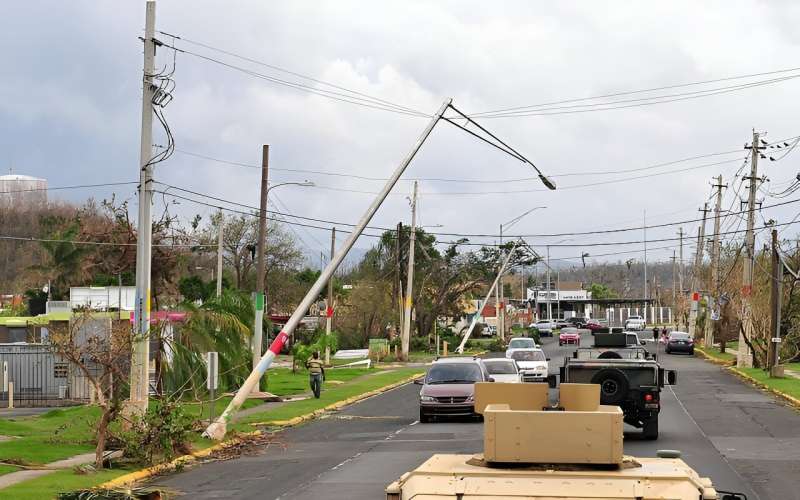This article has been reviewed according to Science X's editorial process and policies. Editors have highlighted the following attributes while ensuring the content's credibility:
fact-checked
peer-reviewed publication
trusted source
proofread
Climate scientists use data from Hurricane Maria to test social vulnerability assessment tool

Nearly six years have passed since Hurricane Maria made landfall in Puerto Rico. The historic storm, one of the deadliest in U.S. history, significantly damaged more than 80% of the island's electrical power system, leading to massive disruptions of essential services for months.
In a new study, led by Jorge González-Cruz of the University at Albany's Atmospheric Sciences Research Center (ASRC), researchers are now using data from Hurricane Maria to assess the critical infrastructure vulnerabilities that still exist in Puerto Rico around extreme weather events, specifically for socially vulnerable populations. The study was published in Nature Energy.
"During extreme events, disruptions in service delivery of critical infrastructures disproportionately impact communities based on socioeconomic and demographic characteristics," said González-Cruz, a Professor of Empire Innovation at ASRC. "Our study presents a new methodology to assess the social vulnerability of extreme weather events, using Hurricane Maria as a case study."
Reconstructing Hurricane Maria
The study reconstructs the impacts of Hurricane Maria on Puerto Rico through a combination of geophysical models, engineering models of both the power and water grid, reviews of damage reports, and use of socio-economic information to determine impacts on low-income communities.
To assess the social vulnerability of communities, the researchers developed a novel social vulnerability index for power and water service disruptions. This index builds on the Centers for Disease Control and Prevention's Social Vulnerability Index (CDC SVI), incorporating indicators such as socioeconomic status, household composition and the overall accessibility of an area during extreme weather events.
"Our findings show that the impact of power and water service disruptions during extreme weather events varies based on social vulnerability," said González-Cruz. "In the case of system upgrades, it is crucial to incorporate community social burdens so that upgrade options can provide equity in service delivery."
After Hurricane Maria, two system upgrade options received popularity among Puerto Rico's policymakers, according to González-Cruz.
One of the upgrade options, switching from centralized power generation to regional mini-grids, would reduce outages, based on the study's assessment. However, a large portion of disadvantaged communities would still experience disruption.
In contrast, hardening existing transmission lines, as the second option, would improve service delivery and provide uninterrupted service to a higher portion of the island's vulnerable populations.
"In the particular case of Puerto Rico, we learned that investments in the transmission grid to improve resiliency to extreme weather may provide more continuous services to larger population sectors at risk, than reconfiguring the system into regional grids," González-Cruz said. "This is valuable information that utilities should consider when making investment decisions for the island's future."
Caribbean climate adaptation network
González-Cruz teaches and conducts research in urban energy sustainability, urban weather and climate, urban remote sensing and regional climate modeling and analysis.
Last fall, he joined the Caribbean Climate Adaptation Network (CCAN), which seeks to connect multidisciplinary scientists with community and government stakeholders in the U.S. Virgin Islands and Puerto Rico to better prepare and respond to climate extremes.
Through CCAN's support, González-Cruz believes the methodology used in this new study can be expanded to other island communities in the Caribbean, and beyond.
"The next step in our research is to look beyond Puerto Rico, with hopes of creating a roadmap for grid resiliency that can be transferable to other island communities," González-Cruz said. "The CCAN network will be critical in expanding this work."
More information: Juan P. Montoya-Rincon et al, A socio-technical approach for the assessment of critical infrastructure system vulnerability in extreme weather events, Nature Energy (2023). DOI: 10.1038/s41560-023-01315-7
Journal information: Nature Energy
Provided by University at Albany





















